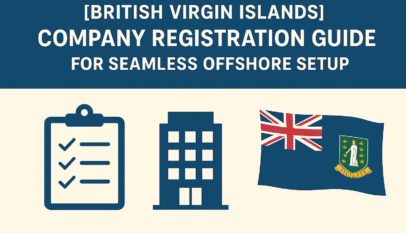
Choosing the right aluminum siding suppliers are essential for anyone looking to enhance their home’s exterior with durable, low-maintenance materials. Suppliers vary in product quality, finishes, and additional accessories like soffits and fascia, which impact the overall performance and appearance of the siding.
Reliable aluminum siding suppliers offer a range of high-quality materials that resist weathering, corrosion, and fire while providing modern aesthetics and long-lasting durability. Many suppliers also provide customizable options and expert installation guidance to meet specific project needs.
Finding a supplier involves considering local availability, product variety, and customer support. Trusted names often carry siding with multiple finishes and complementary products designed to improve both functionality and curb appeal.
Top Aluminum Siding Suppliers
Aluminum siding suppliers vary by scale, location, and specialization. Some operate nationwide, providing broad product ranges and distribution capabilities. Others focus on regional markets, offering tailored service and inventory. Specialty vendors concentrate on niche products or advanced technologies for specific siding needs.
National Distributors
National distributors serve extensive markets with wide product selections and reliable logistics. Companies like ABC Supply provide aluminum siding, soffits, and fascia across the country. Their inventory often includes multiple finishes, colors, and profile options, catering to contractors and large-scale builders.
These suppliers maintain significant warehouse networks, enabling quick delivery and consistent availability. Their partnerships with major manufacturers ensure access to certified, durable materials. National distributors often offer additional building supplies, streamlining procurement for larger projects.
Regional Suppliers
Regional suppliers focus on specific geographic areas, adapting their stock and services to local climate and codes. Buchner Manufacturing, for example, operates primarily in Canada, supplying aluminum and steel siding systems that meet regional standards.
They may offer more personalized service and technical support compared to national distributors. Regional suppliers tend to build strong relationships with local contractors and homeowners. Their product lines may emphasize durability against specific weather conditions like corrosion or fire resistance.
Specialty Aluminum Siding Vendors
Specialty vendors develop or distribute innovative siding solutions with unique features. NORTCLAD provides aluminum siding with advanced corrosion and fire resistance while maintaining a lightweight design.
Others, like GTO Aluminum, focus on cladding installation systems suited for both interior and exterior applications. These suppliers often produce high-performance products that address particular installation or aesthetic demands. They may also offer exclusive finishes or custom profiles not found in standard inventories.
How to Choose an Aluminum Siding Supplier
Selecting an aluminum siding supplier requires attention to specific factors that affect product performance, cost efficiency, and long-term support. Quality, pricing structures, and service capabilities impact the overall value and outcome of any siding project.
Evaluating Product Quality
Assessing the material’s quality is critical when choosing a supplier. Look for suppliers that provide aluminum siding made from high-grade alloys, known for resistance to corrosion, fire, and weathering.
Verify certifications such as ISO 9001 to ensure manufacturing standards are met. A supplier with a stable and sufficiently large production facility indicates reliable output. Check for a variety of finish options and thicknesses, as these affect durability and aesthetics.
Request samples or visit completed projects to inspect the siding’s finish, texture, and color consistency. Durable coatings that resist fading and peeling should be standard.
Comparing Pricing and Delivery Options
Price should be transparent and competitive, reflecting the grade of aluminum and finish applied. Suppliers should offer clear breakdowns covering material costs, shipping fees, and potential bulk discounts.
Delivery timelines matter. Confirm lead times and whether the supplier provides reliable, punctual shipping to avoid project delays. Look for flexible delivery options including staged shipments for phased construction work.
Compare warranty terms along with pricing, as a supplier offering longer warranties may justify a higher price by ensuring product lifespan and support.
Customer Support and After-Sales Service
Strong customer service is vital, especially if issues arise during or after installation. A reputable supplier provides accessible and knowledgeable support staff who can quickly resolve questions or concerns.
After-sales services to consider include warranty handling, replacement policies, and availability of installation advice or technical documentation.
Check for suppliers with established reputations for service responsiveness. Their willingness to assist throughout the project lifecycle reflects on the reliability and professionalism of the business.
British Virgin Islands Company Registration Guide for Seamless Offshore Setup
Registering a company in the British Virgin Islands (BVI) is a straightforward process tha…








